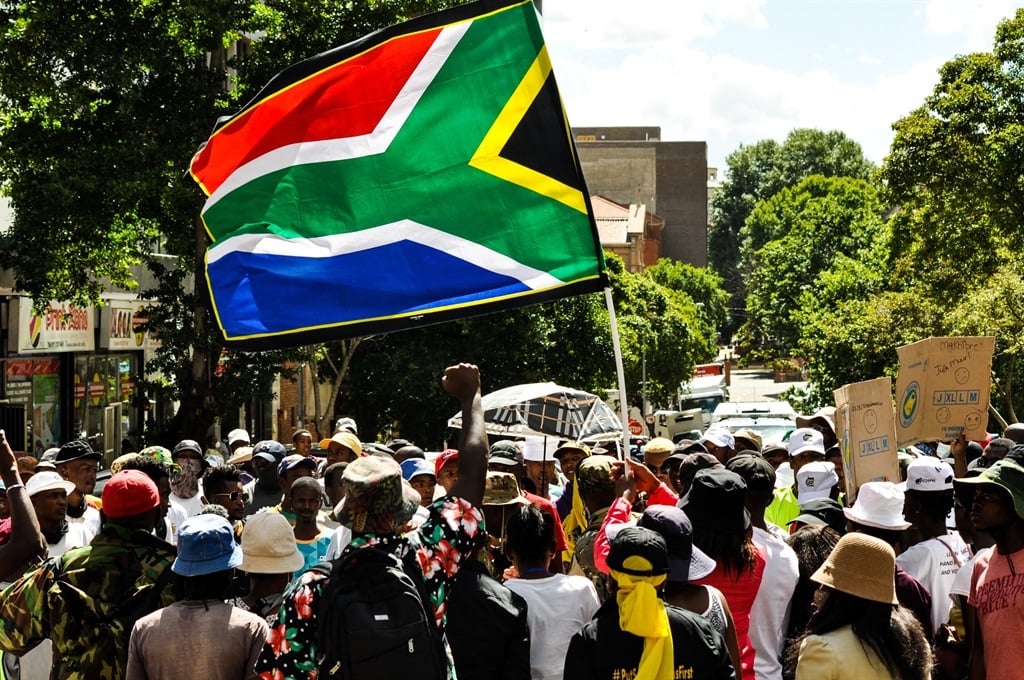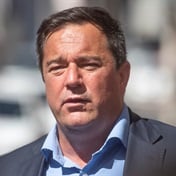
For the first twelve years of our democracy we were in the season of hope. Since 2011 that has changed, and we seeing a turn towards anger, writes Chris Jones.
Freedom Day, which is celebrated annually on 27 April, commemorates the first democratic elections held in South Africa on this day in 1994. Many sacrifices have been made to ensure our democracy and freedom.
Considering this, and the fact that South Africa was an iconic example of democratisation during the 1990s, this article will briefly look at the state of our democracy. We cannot talk about freedom without reflecting on democracy.
In their paper "South Africa: When Strong Institutions and Massive Inequalities Collide", Brian Levy and his colleagues state that electoral democracies, between 1988 and 1996, worldwide increased from 67 to 118 countries. On the other hand, between 2006 and 2017, the proportion of classified democratic countries decreased from 58% to 51%.
In his reflection on the interactions between development and inequality in Latin America, German economist Albert Hirschman provides us with a useful analysis for understanding our own situation.
He frames this interaction as a cycle with three phases: growth, anger, and reform, and then compares the (starting of the) growth phase to being stuck in a serious traffic jam in a two-lane tunnel.
High inequality under apartheid
After a while, the vehicles in the other lane start to move slowly. And this creates hope, also in the persons who are still standing still. They have the expectation that they, too, will start moving soon. As long as the tunnel effect lasts, everyone feels better: those who are moving – the people having access to money, and those who are standing still, in other words, who are left without any wealth. As long as there are expectations, people feel grateful, while envy is overcome or at least suspended.
During apartheid, inequality was very high, but the promise of a more inclusive economy and a genuinely free society gave many people hope and galvanised them in their quest to achieve this goal.
However, Hirschman states that tolerance for imbalances and inequality has a certain shelf life. If disparities do not narrow, if expectations are not realised, trouble and even disaster can strike.
READ | OPINION: Tackling inequality starts with investing in young children
If the vehicles in the proverbial lane in which you are stuck do not start moving at a given time, people become angry and furious and consequently an enemy of the ruling, established order.
This cycle, as Hirschman indicates, needn't have to stop with anger but can potentially move to a new phase of reform which normally involves "efforts at catching up on the part of lagging sectors and regions at social reforms to improve the welfare and position of groups that have been neglected and squeezed, and at redistribution of wealth and income in general".
Although South Africa is not perfect, we have had, since 1994, strong formal institutions that could have become the foundation for addressing our daunting political, economic, and social challenges. Unfortunately, economic inequality, with all its consequences has made this extremely difficult.
This is, among other things, why it is so difficult for the ANC government to deliver on their promise of upward mobility. Levy and his colleagues argue that it faces "an especially difficult tension between creating new opportunities for those outside the formal economy and satisfying the concerns of vulnerable black middle-class insiders, who [are] an influential block within the ANC."
Ongoing imbalances
Continuing inequalities and imbalances between political and economic power can easily undermine the stability of the broader political settlement. The danger is that disillusion combined with ethno-populist political entrepreneurship can move people, in an ideational way, from growth and hope to anger. They reach a point where they start to question the value of their hard-won freedom.
But there is also a second mechanism pushing people from hope to anger, and this is when elites (through contestation, conflict, corruption, and lack of robustness) and non-elites (through ongoing challenges) corrode institutions.
What we need is good practical ideas; strong, credible institutions; and development that will fuel economic growth. These elements offer hope and encourage cooperation. However, persistent and unresolved tensions between the distribution of economic and political power can stymie South Africa's development and progress, and ultimately threaten our democracy.
In the first twelve or so years, our democracy was in a season of hope. Still riding the wave of their new-found freedom, people embraced the ANC slogan "a better life for all" and hoped for the realisation of mutual gains through effective cooperation. The challenge always was to combine a commitment to growth with a commitment to share the benefits of that growth.
We (unfortunately) had elite transformation through Black Economic Empowerment (BEE) that benefited only a relatively small number of people.
Furthermore, cadre employment made it difficult to instil professional norms and capacity in the public service. This paralysed the establishment of strong institutions.
Unmet expectations
Several other factors (such as deteriorating trends in public performance, political interference in the appointment of senior municipal staff, inflated and fragmented government machinery) led to the decline in the quality, integrity and performance of public sector governance.
From 2011 up till now, our people have become furious. The fact that the expectations of the majority of South Africans haven’t been met, that their turn didn't come, made many people an enemy of the established order.
READ | Mandy Wiener: Why we don’t trust government but would rather trust NGOs
Unsurprisingly, there was a racial element regarding South Africa's angry turn. There were large continuing inequalities, evident especially during Zuma's presidency, with slogans "Rhodes Must Fall" and "Fees Must Fall", among others. These slogans represented people's anger and were cleverly used by certain political entrepreneurs within and outside government.
This ethno-populism furthered certain political and personal ambitions. Government has not been able to reverse this downward spiral of a deteriorating economy and decline in trust between economic and political elites and non-elites.
Furthermore, the promise of upward mobility, reducing poverty, and creating jobs, and the commitment to protect the interests of existing black middle-class insiders were in direct conflict with one another. Disillusion and anger took hold of many people.
Positive outcome
The danger remains that with weak economic performance, institutional decay, and the growing shift toward anger and ethno-populism, there will be an accelerating slide to the bottom because these elements feed on one another.
What would a positive scenario look like? It would be one of inclusive development, anchored in a renewed societal commitment to cooperate and to continuously strive for win-win outcomes – not rooted in political ideology. The aggregate income, within such a scenario, beats all other possible scenarios and can hypothetically rise by 40%.
Levy and his colleagues reason that "It is imperative that South Africa strengthen the governance and effectiveness of the public sector. The country needs to raise revenues to finance a credible commitment to upward mobility and to confront the rigidities that block mobility. It needs to renew a sense of fairness and of opportunity. Leadership needs to take the risk of mobilising new coalitions capable of trumping the vested interests that stymie inclusive change. Can South Africa’s leadership … summon the necessary boldness to rise to this challenge?"
These are the kind of questions and proposals to be considered seriously on a day commemorating our hard-won freedom and democracy.
- Dr Chris Jones is Chief researcher in the Department of Systematic Theology and Ecclesiology, and also head of the Unit for Moral Leadership at Stellenbosch University.
*Want to respond to the columnist? Send your letter or article to opinions@news24.com with your name and town or province. You are welcome to also send a profile picture. We encourage a diversity of voices and views in our readers' submissions and reserve the right not to publish any and all submissions received.
Disclaimer: News24 encourages freedom of speech and the expression of diverse views. The views of columnists published on News24 are therefore their own and do not necessarily represent the views of News24.




 Publications
Publications
 Partners
Partners























